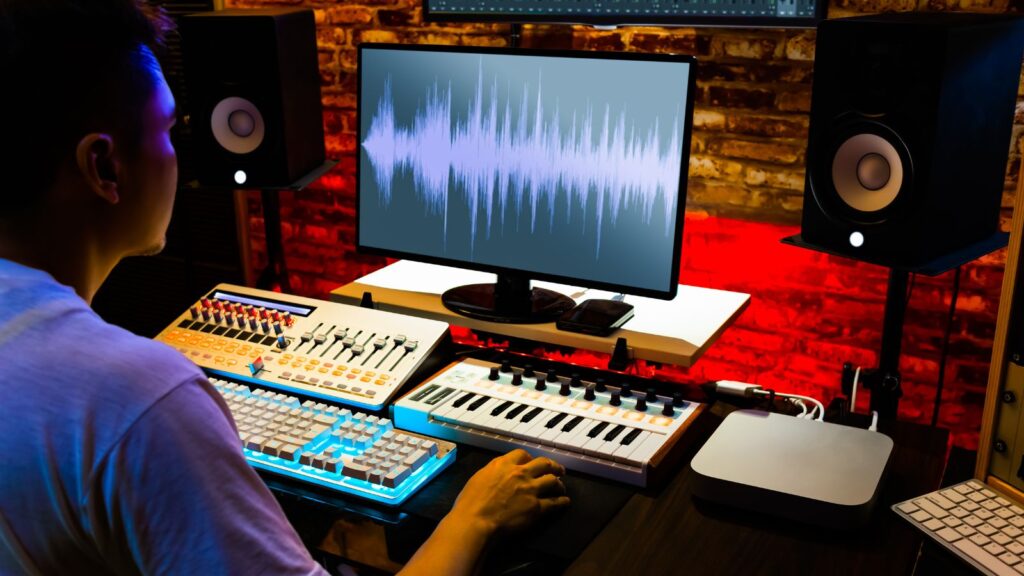In the digital age, music production has become an art that’s just as much about the tech as it is about the tunes. If you’re a musician or a producer, you know the right computer can make or break your creative process. This article will guide you through the Best Computer for Music Production, helping you hit the right note every time.
Whether you’re just starting out or you’re a seasoned pro, you’ll find a wealth of information here. We’ll explore a range of models, from budget-friendly options to high-end machines. So, let’s dive into the world of music production computers, and find the perfect fit for your studio.
Best Computer for Music Production
Music production in today’s digital era revolves around electronics. A computer, often at the heart of this digital network, becomes the central hub that powers creativity. If a painter relies on a quality brush, a composer or sound engineer leans on high-grade computers to craft and polish their masterpiece.
First, it’s essential to comprehend how crucial processing power is. Complex compositions demand intense data processing. A weak processor struggles with multiple inputs, jeopardising the artist’s productivity. Meanwhile, a potent processor manages numerous tracks, effects and synthesises them smoothly, keeping the artist’s workflow undisturbed. Titles like Logic Pro X, Ableton Live, and Avid Pro Tools, for instance, require robust processors to function efficiently.
Second, sufficient memory capacity plays a significant role, too, in music production. This resource maintains smooth operations, especially when running multiple programs simultaneously. It’s not just about the software; plugins also eat into the memory resources. Therefore, a generous RAM allocation (16GB or above) helps the system manage these multiple demands, keeping transitions swift and system responses prompt.
Third, robust storage is no less critical than the previous two. Swift access to saved work is a priority; delays can break up the rhythm and result in lost inspiration. While hard drives provide sizeable storage, Solid State Drives (SSDs) offer unmatched speed. This speed difference often feels noticeable in the middle of high-intensity work sessions.

Factors to Consider When Choosing the Best Computer for Music Production
Choosing the right computer for music production involves evaluating significant aspects such as processing power, memory, storage, audio interfaces and even ergonomic design. While the previous sections have discussed these elements broadly, here we’ll delve deeper into these factors.
Processing Power: High processing power is key in handling multiple tracks, effects, and plugins in real time. Computers with multi-core processors, such as Intel’s i7 or i9 or AMD’s Ryzen series, excel in the processing power required by most digital audio workstations (DAWs).
Memory: More RAM allows smooth multitasking involving numerous tracks and plugins. You’ll benefit from a machine with at least 16 GB of RAM, while 32 GB improves performance, particularly for complex productions.
Storage: SSDs, due to their faster data access times, offer advantages over traditional HDDs. Larger capacities lessen the risk of running out of space during larger projects. A 500 GB SSD can be a good start, but a 1 TB SSD provides a sizable room for work.
Audio Interfaces: onboard audio may suffice for beginner level tasks, but professional music production calls for higher quality external audio interfaces. They deliver superior sound quality, reduce latency, and provide multiple inputs and outputs. Renowned brands include Focusrite, PreSonus, and Apogee.

Top Picks: The Best Computers for Music Production
Apple iMac Pro
Apple has a record of producing high-calibre machines, and the iMac Pro exemplifies this standard. It’s equipped with a robust Intel Xeon processor, capable of handling heavy workloads without compromising speed or efficiency. Moreover, it provides up to 256 GB of memory and 4 TB of SSD storage, amplifying its capacity to manage intensive music production requirements.
Dell XPS 8940
The versatility of the Dell XPS 8940 makes it suitable for music enthusiasts and professionals alike. Its powerful 10th gen Intel i7-10700K processor ensures substantial processing capabilities. Furthermore, specification configurations allow memory expansion up to 64 GB and storage up to 2 TB SSD, suiting differing music production demands.
HP ENVY Desktop
Riding the wave of technological advancement, the HP ENVY Desktop offers a top-tier Ryzen 7 processor, which stands up to the most demanding music software. Its maximum 64 GB of memory and up to 2 TB SSD storage cater to ample track recording and editing.

